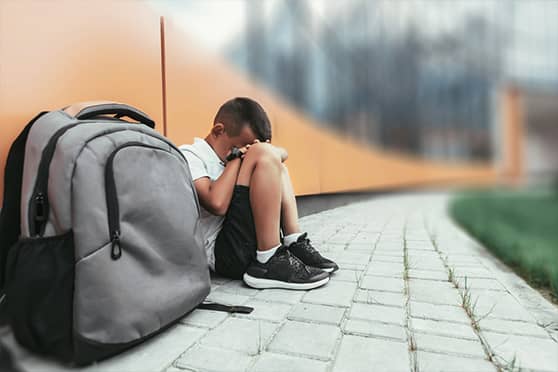Pandemic learning gap can impoverish a generation, says World Bank report


School closures because of COVID-19 resulted in significant learning loss that will directly affect the current generation, according to a report prepared by the World Bank in collaboration with UNESCO and UNICEF.
The report titled ‘State of the Global Education Crisis: A Path to Recovery’
also stated that the present generation might lose 17 trillion US dollars in lifetime earnings in the current value or 14% of the global GDP.
The estimate released in 2020 was 10 trillion US dollars and the current estimate in 2021 is severe as well as alarming.
The report shows that in low and middle-income countries, the share of children living in learning poverty that was already 53% before the pandemic, might potentially reach 70% because of prolonged school closures and failure of remote learning to ensure learning continuity during school closures.
“The COVID-19 crisis brought education systems across the world to a halt. Now, 21 months later, schools remain closed for millions of children, and others may never return to school. The loss of learning that many children are experiencing is morally unacceptable. And the potential increase of learning poverty might have a devastating impact on future productivity, earnings, and wellbeing for this generation of children and youth, their families and the world’s economies,” said Jaime Saavedra, World Bank Global director for Education.
The report also pointed out that till now less than 3% of the stimulus packages by the government have been allocated to education and more funding will be needed for the immediate recovery of learning.
It was also found that while about every country in the world offered remote learning opportunities for students, the quality and reach of such initiatives differed in most cases. They could offer only a partial substitute for in-person instruction and the quality of education was thus compromised.
More than 200 million students from low and lower-middle income countries were unprepared to start remote learning during emergency school closures.
“Reopening schools must remain a top and urgent priority globally to stem and reverse learning losses. Countries should put in place learning recovery programs with the objective of assuring that students of this generation attain at least the same competencies of the previous generation,” the report said.
“In terms of improving the efficiency of learning, techniques like targeted instruction can help learning recovery, which means that teachers align instruction to the learning level of students, rather than an assumed starting point or curricular expectation. Targeted instruction will require addressing the learning data crisis by assessing students’ learning levels. It also necessitates additional support to teachers so that they are well-equipped to teach to the level of where children are, which is crucial to prevent losses from accumulating once children are back in school,” it added.